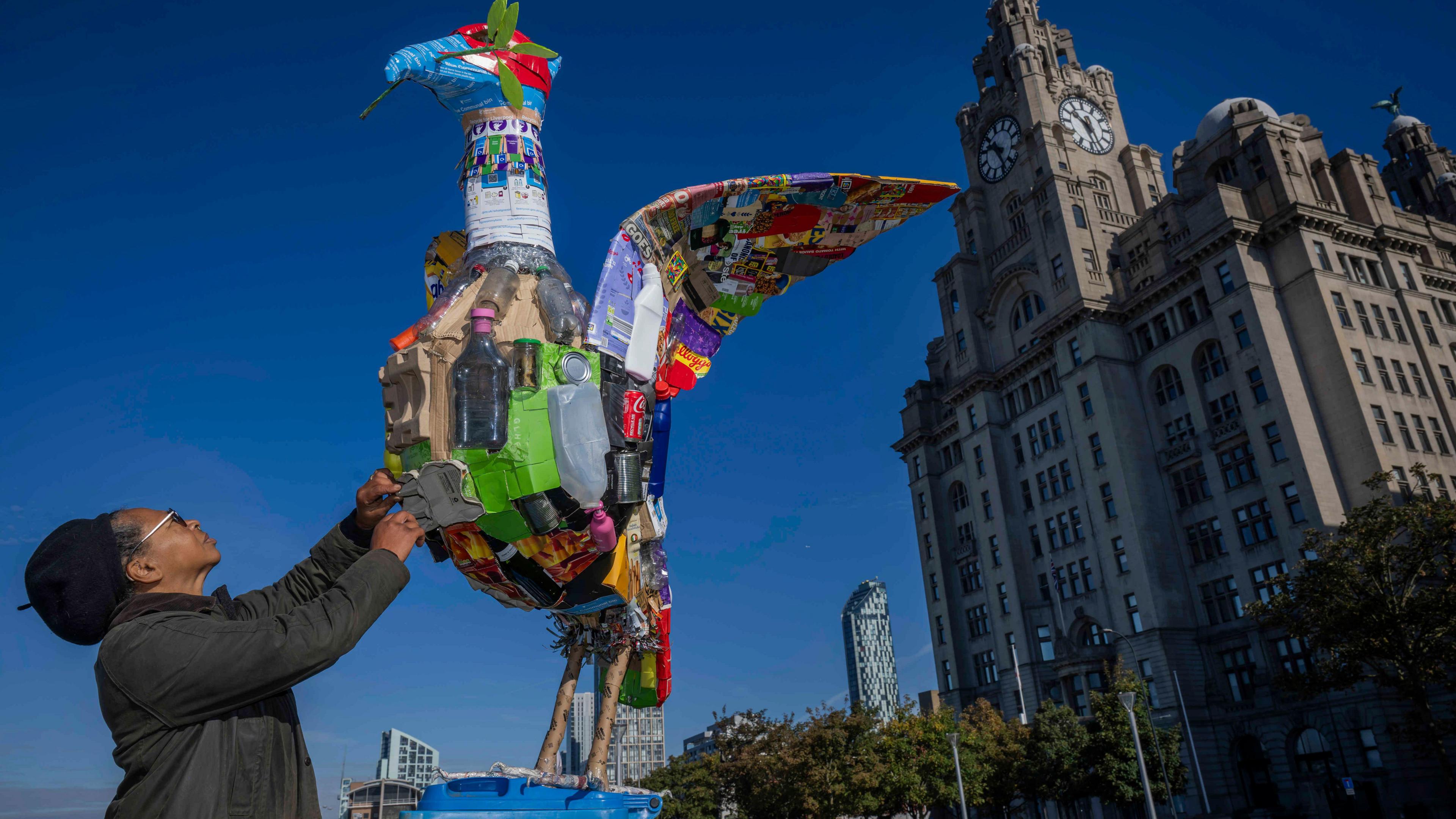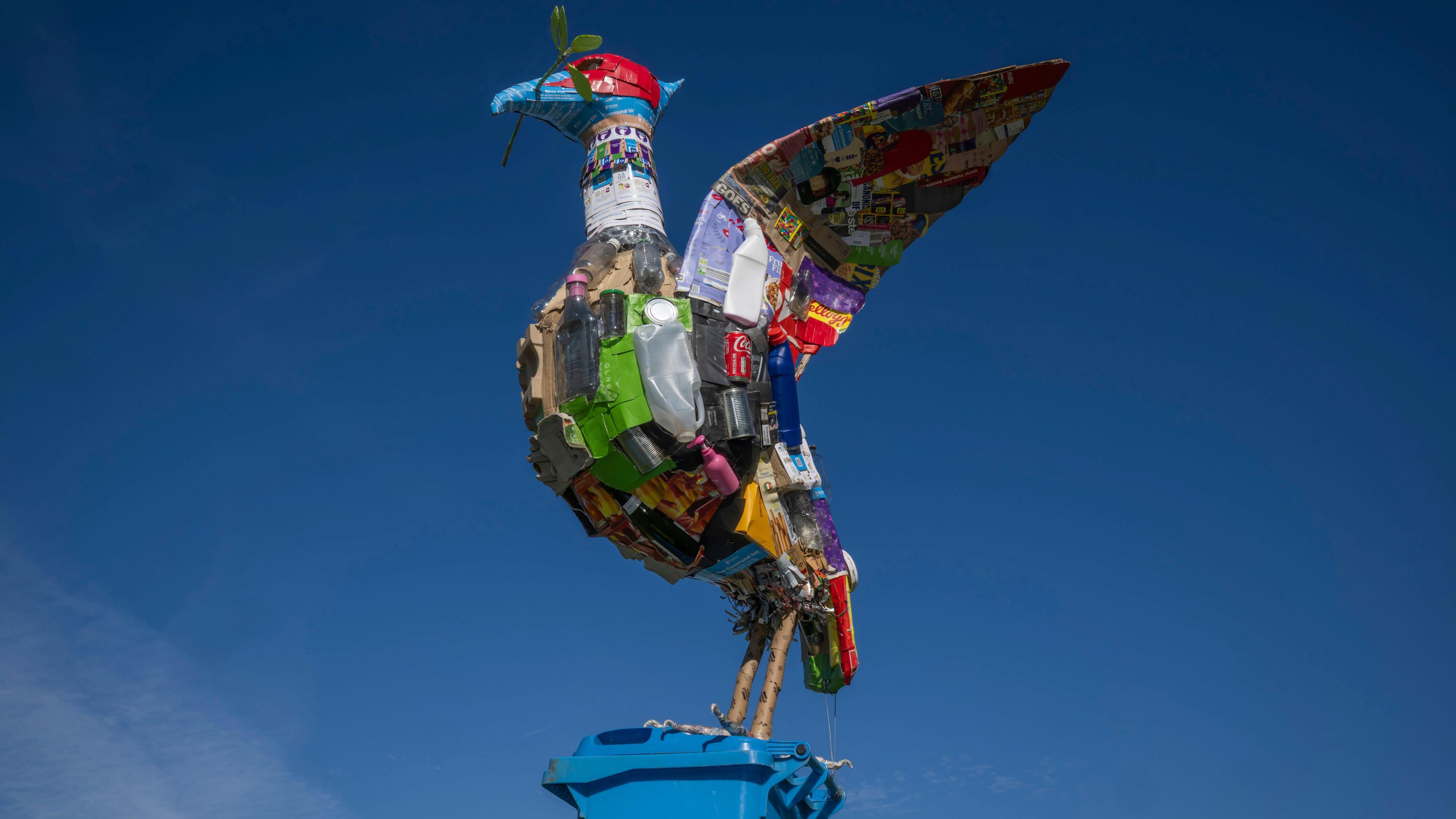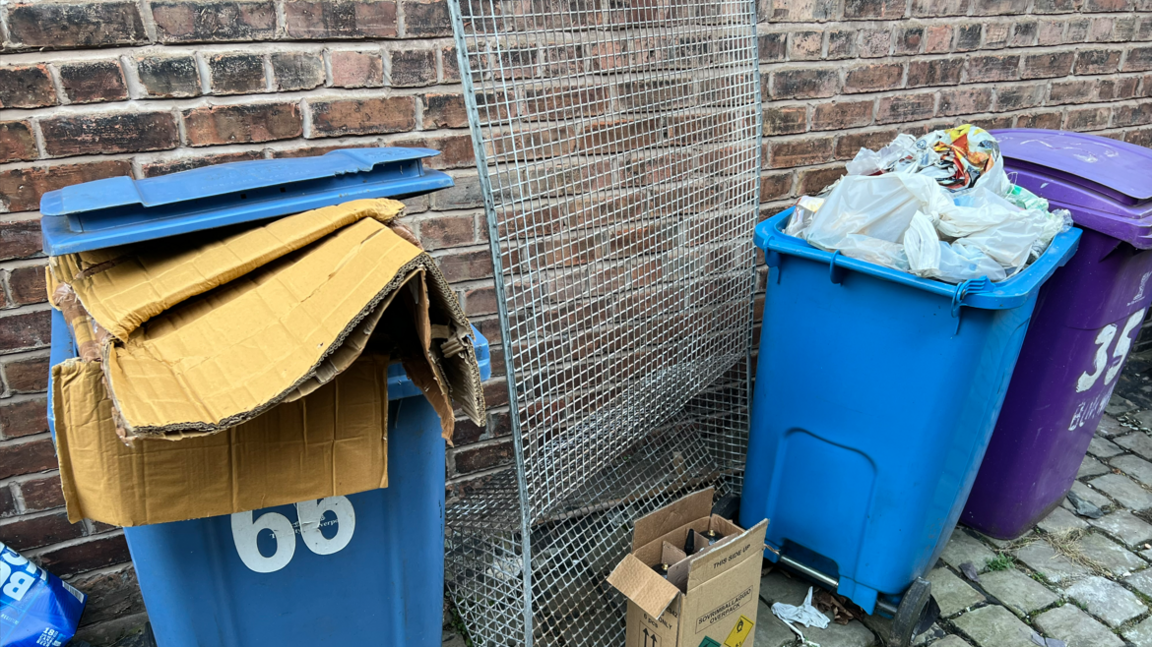'Third Liver Bird' aims to improve recycling rates

Artist Faith Bebbington created the new sculpture as part of a campaign to improve recycling rates
- Published
A "third Liver Bird" has been made out of recycled household waste as part of an effort to improve Liverpool's recycling rate.
The new sculpture - based on the city's iconic waterfront symbols - was created from cans, glass and plastic bottles, cardboard boxes and egg cartons as part of a campaign to educate residents about what to put in their blue recycling bins.
Liverpool City Council is trying to improve a record of just 17.9% of household waste being reused, composted or recycled. It is the second lowest rate in England; the national average is 42%.
The sculpture, created by local artist Faith Bebbington, was commissioned to launch a six-month campaign called We're Talking Bins.
Plans are being explored to keep the artwork on public display and for it to be used for educational purposes in schools.
Councillor Laura Robertson-Collins, cabinet member for neighbourhoods, said: "There are several reasons for our poor recycling rates here in Liverpool, some of which we, as residents, can take control of.
"For instance, we are seeing items go in the purple, general waste bin that could - and should - be going in the blue bin.
"From our research, there's a very clear desire to recycle more and our goal is to enhance local people's knowledge to empower them to make important changes."

Liverpool has the second worst rate of recycling in England
The campaign comes as a new pilot for food waste collections hits Liverpool this week, involving 15,000 households.
Unwanted and leftover food - including teabags, fish and meat bones, and eggshells - can be recycled into new products while reducing the amount of carbon dioxide released into the atmosphere.
Residents in the first phase have been provided with a small indoor bin and a roll of liners - which can be emptied into a second outdoor caddy.
The food waste will be broken down organically and the methane gas released will be converted to biofuel.
The service will becomes mandatory across the country next April.
Get in touch
Tell us which stories we should cover on Merseyside
Listen to the best of BBC Radio Merseyside on BBC Sounds and follow BBC Merseyside on Facebook, external, X, external, and Instagram, external, and watch BBC North West Tonight on BBC iPlayer.
Related topics
- Published16 November 2024
